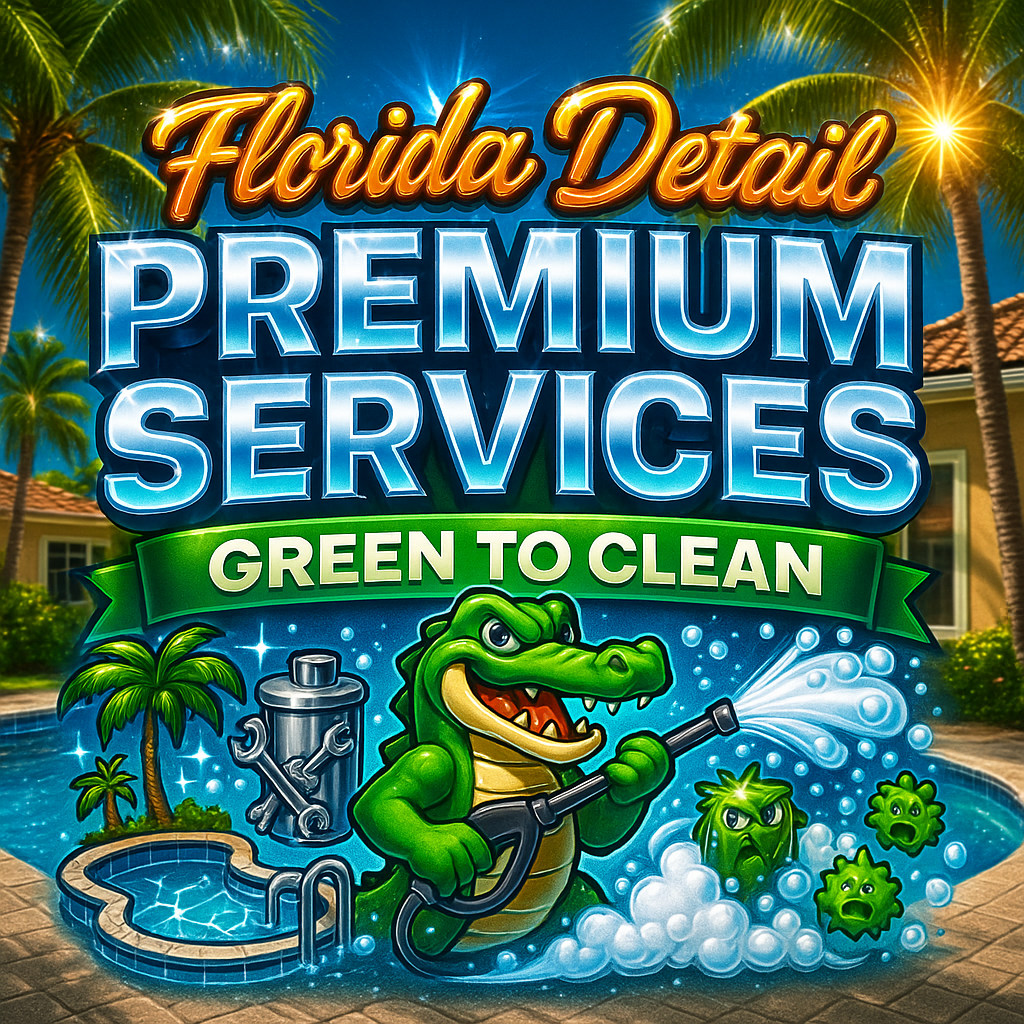For homeowners in Port Charlotte, algae growth in pools is a common problem due to the humid subtropical climate, heavy summer rains, and high heat levels. Algae can turn a crystal-clear pool into a green, slippery mess in just a few days if not properly managed. A professional pool cleaning service is the most effective way to prevent algae from taking over.
This guide will explore how professionals control algae growth, the methods and tools used, seasonal considerations in Florida, and practical steps homeowners can take to maintain a clean and safe pool year-round.
Learn more about professional pool services.
H2: Why Algae Grows in Florida Pools
Algae thrive in pools because of:
- Warm temperatures: Perfect for reproduction.
- Sunlight exposure: Promotes rapid growth.
- Poor circulation: Dead zones in the pool allow algae to accumulate.
- Imbalanced chemicals: Improper pH, chlorine, or alkalinity levels.
- Debris and organic matter: Leaves, dirt, and pollen act as food.
Without professional intervention, these factors make Florida pools highly susceptible to algae blooms, particularly in summer and rainy season.
H2: Professional Algae Prevention Techniques
H3: Chemical Treatments
- Shock treatments: Periodic high-dose chlorine to kill algae spores.
- Algaecides: Prevent growth and eliminate early-stage algae.
- Balanced pH and sanitizer levels: Maintain proper chemical ratios.
H3: Circulation & Filtration
- Regularly running pumps and backwashing filters ensures water flows through every corner of the pool, leaving no stagnant areas for algae to settle.
H3: Brushing & Skimming
- Professionals brush pool walls and floors weekly to remove biofilm and prevent algae attachment.
- Skimming removes organic debris before it decomposes into nutrients for algae.
H2: Step-by-Step Algae Prevention Checklist
- Test water weekly for pH, chlorine, and alkalinity.
- Shock pool monthly or after heavy rains.
- Apply algaecide according to seasonal needs.
- Brush pool surfaces thoroughly to remove early algae growth.
- Vacuum & clean filters to ensure proper circulation.
- Inspect equipment to prevent dead zones.
H2: Seasonal Considerations in Port Charlotte
- Summer: Increased frequency of shock treatments due to high temperatures.
- Rainy Season: Test after storms; top-off chlorine and adjust chemicals.
- Winter: Reduced algae growth, but maintain circulation to prevent stagnation.
H2: FAQs
Q1: Can algae completely ruin my pool?
A1: If untreated, algae can stain surfaces, damage equipment, and make water unsafe.
Q2: How long does professional treatment take?
A2: Most weekly cleanings include prevention; severe blooms may require 24–48 hours for chemical treatment.
Q3: Are eco-friendly algae solutions available?
A3: Yes — saltwater systems, mineral-based algaecides, and robotic cleaners help reduce chemical use.
Q4: How often should filters be cleaned?
A4: At least monthly, or more often during peak algae season.
Q5: Can I prevent algae myself?
A5: Regular monitoring, brushing, and chemical balancing help, but professional oversight ensures consistent results.

Conclusion
Professional pool cleaning services in Port Charlotte protect homeowners from algae growth by combining chemical treatments, proper circulation, and expert maintenance. Following these practices ensures a clean, safe, and inviting pool year-round.
👉 For professional algae prevention and pool care, visit Florida Detail.
👉 Boost your local service business visibility with UnlimitedManiac.com.
Internal Links: Home, Services, Contact, Blog
External Backlinks (rotating): PortCharlottePoolService.com, NorthPortPoolCompany.com
Engagement Questions:
- How often do you notice algae growth in your pool?
- Do you prefer DIY prevention or hiring professionals?
- Would you like a seasonal checklist for algae prevention?

